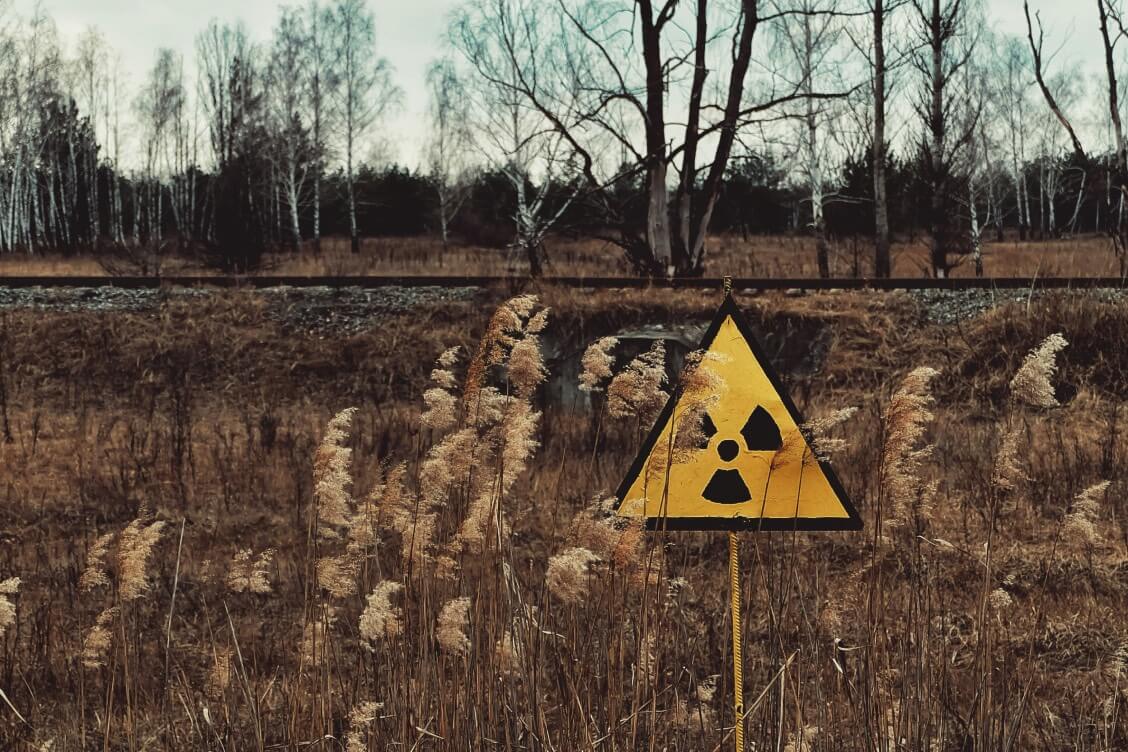Caesium-contaminated area shrunk to 12 percent of Belarus – official

April 22, Pozirk. Thirty-eight years after the accident at the Chernobyl Nuclear Power Plant, the area contaminated with caesium-137 has shrunk by a factor of 1.8 to 25,500 sq. km, or 12 percent of Belarus’ territory, said Leanid Dziedul, the first deputy head of the country’s radiation safety department Dziaržatamnahlad.
He told a press conference in Minsk that 1.5 million hectares of forests and about 19,000 hectares of agricultural land are contaminated with caesium-137 at the level of 1 curie per sq. km.
There are 2,022 settlements with about 930,000 people, including 185,000 children, in the contaminated zones of all regions except Viciebsk.
Dziedul said that the radioecological survey of these settlements will be completed in 2024–2025, and in early 2026 their list will be adjusted by a corresponding government directive.
The government allocated three billion rubels for the 2021–2025 state program for overcoming the consequences of the Chernobyl accident. Eighteen percent of these funds are earmarked for radiation safety measures.
The accident at the Chernobyl Nuclear Power Plant, the largest man-made disaster in human history, occurred on April 26, 1986.
Although the plant is located in Ukraine, Belarus was the hardest hit with more than 70 percent of the radioactive fallout contaminating its territory.
Also read: Health officials keep finding radioactive mushrooms and berries 37 years after Chernobyl
- Politics, SecurityRussian-born Butraniec appointed as deputy chairman of State Border CommitteeThe material is available only to POZIRK+
- Politics, SecurityLithuania, Latvia report a spike in irregular border crossing attemptsThe material is available only to POZIRK+
- EconomyBelarusian steelmaker scales back output to maintain profitabilityThe material is available only to POZIRK+
- Society
- PoliticsBelarus' FM accuses the West of impeding development of other countriesThe material is available only to POZIRK+
- Politics
- Economy
- EconomyBelarus to raise subsistence minimum budget on May 1The material is available only to POZIRK+
- PoliticsOpposition politician slams prison sentences against Kalinoŭski fighters as revengeThe material is available only to POZIRK+
- SocietyGovernment allows hunting bears, lynxesThe material is available only to POZIRK+
- Politics, SecurityJournalists expose Belarusian company’s links with Russian defense industryThe material is available only to POZIRK+
- PoliticsRights groups declare seven new political prisonersThe material is available only to POZIRK+
- PoliticsReprisals: jailed activist Kaleśnikava turns 43The material is available only to POZIRK+
- Politics, SecurityMinsk court sentences five Belarusian volunteer fighters to lengthy prison termsThe material is available only to POZIRK+
- SocietyMore than 17,000 Belarusians visited Georgia in Q1The material is available only to POZIRK+
- Politics, SecurityArmy battalion conducting offensive exercise near AsipovičyThe material is available only to POZIRK+
- Economy
- PoliticsUN experts sound alarm over forced psychiatric treatment of Belarusian dissidentsThe material is available only to POZIRK+
- Economy
- Economy
- PoliticsRights group reports raids in Dziaržynsk, exiled Belarusians targetedThe material is available only to POZIRK+
- Society
- PoliticsSikorski, Rubio discuss migration crisis at Polish-Belarusian borderThe material is available only to POZIRK+
- PoliticsReprisals: police punish criticism of Łukašenka’s policiesThe material is available only to POZIRK+
- PoliticsCatholic priest free after reported April 23 arrestThe material is available only to POZIRK+
- SocietyBelarus arrests French man on suspicion of hashish smugglingThe material is available only to POZIRK+
- PoliticsBelarus’ police arrest Catholic priest, evangelical pastorThe material is available only to POZIRK+
- Belarus to build nuclear disposal site in Mahiloŭ region, Astraviec district or radiation-contaminated areaThe material is available only to POZIRK+
- Economy, PoliticsBelarus, Russia postpone common oil market until 2027The material is available only to POZIRK+
- PoliticsRussian-Ukrainian war to determine Belarus’ future - SikorskiThe material is available only to POZIRK+